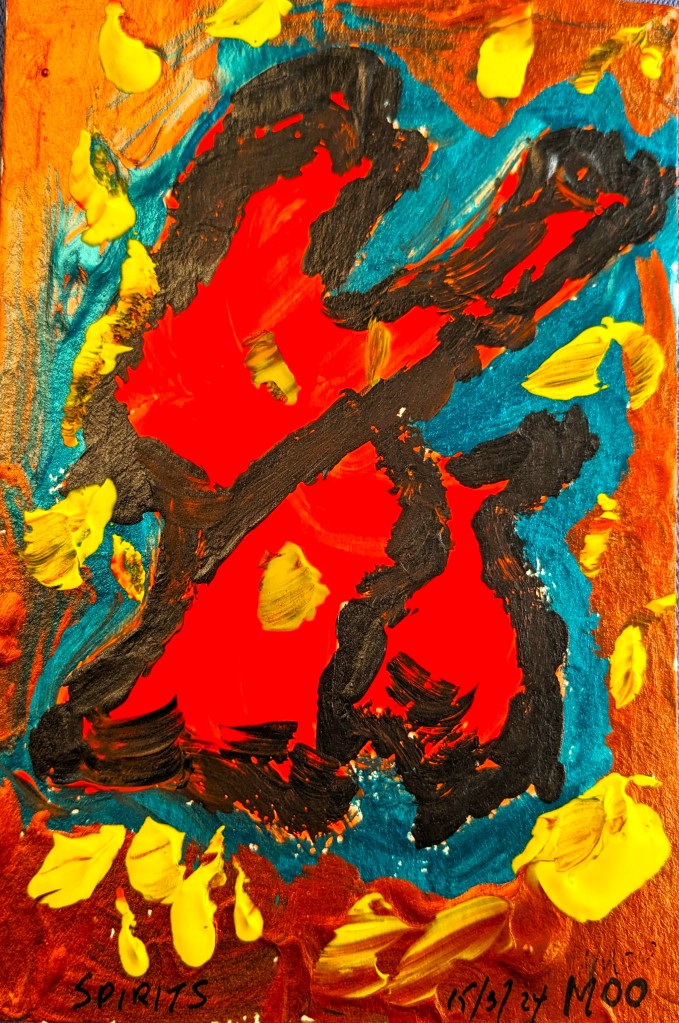
In Place of Grief
A double meaning of course / wrth gwrs. (a) to be in a place of grief and (b) to do something in place of grief i.e. instead of grief. Take your pick. One of my close friends immediately called it Chains. I replied – Ray Charles – “Take these chains from my heart and set me free.” Sometimes, with a great effort, we can do that ourselves. But, if the hole we have dug for ourselves, or that has been dug for us, is too deep, then we may need help.
Creativity is always a help. Painting and poetry, for me. And sometimes the hand of friendship, reaching out from the anonymity of hyperspace – the space beyond the space in which I live and with which I hold my Bakhtinian Dialog what he calls my chronotopos – my dialog with my time and place. Alas, sometimes it is a monolog – and then, when I get not reply, either from time nor from place, I feel an existential grief.
Door
A door slammed shut
in my heart.
That closed door
left me outside,
shivering in the cold.
Now I no longer know
who or what I am.
The shadow of nothingness
wraps its black shroud
around my shoulders.
Dark night of the heart,
and me alone,
walking an unlit road
with no end in sight.
(a) The shadow of nothingness is Meister Eickhard’s Umbra Nihili. A reference to the medieval philosopher.
(b) The dark night of the heart is a reference to St. John of the Cross’s dark night of the soul, part of the Via Purgativa, the mysterious road walked by the Mystics.










